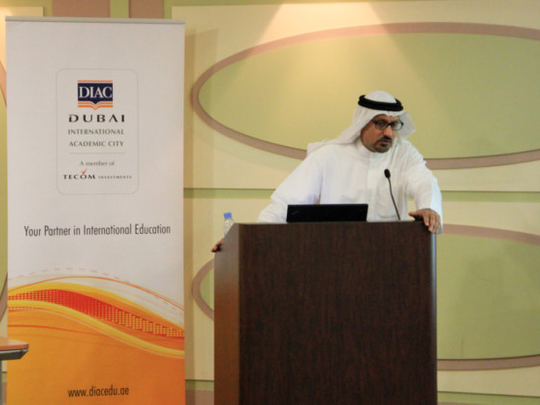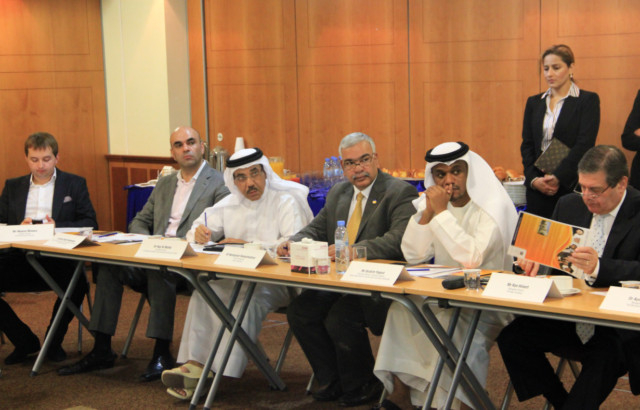
DUBAI: The tourism and hospitality sector is poised for rapid growth in the coming years and requires intensive collaboration from all stakeholders to work towards creating a professional training hub in Dubai to cover the skill gaps in training professionals for this sector.
According to the GCC Hospitality Industry Report 2012 (Alpen Capital), the hospitality market in the UAE is forecast to grow at an average rate of 8.1 per cent in the next four years, to $28.3 billion (Dh104 billion). Moreover, a new study from the World Travel and Tourism Council (WTTC) states that the travel and tourism industry contributed 14 per cent to the UAE economy in 2012 — well above the global trend of 9 per cent. Last year, Dh193.6 billion of the UAE’s GDP came from the industry and that contribution is expected to rise by 3.2 per cent by the end of this year.
The roundtable on the tourism and hospitality sector held on May 15 at the Knowledge village had representatives from Jumeirah Group, Emirates Academy, the Knowledge and Human Development Authority (KHDA), the Department of Tourism and Commerce Marketing, Emaar Hospitality Group, Alpha Tours, National Institute of Vocational Education, International Centre for Culinary Arts, Higher Colleges of Technology and DIAC academic partners, among others.
The roundtable came as a spin-off of a ground-breaking workforce planning study conducted by Dubai International Academic City (DIAC) in collaboration with Deloitte. This comprehensive and independent study was to understand the workforce skills gaps that currently exist within emerging markets. The UAE emerged as the fourth most attractive destination for international students to study abroad. The study identified a number of skills gaps within the burgeoning sector that currently accounts for 1 in 9 jobs.
Newly released figures from the Workforce Planning Study have revealed that some corporates are having difficulty finding suitable candidates for junior positions within the industry.
One of the common conclusions of the roundtable was the need to bridge the gap between the industry and academia and for all stakeholders in the tourism and hospitality sector to work together. The sectors included leading hotel groups, travel and tourism companies, hospitality training institutes, vocational guidance institutes, universities that have full-fledged tourism and hospitality course in their curriculum and relevant government departments. All these enities could work towards bridging the skill gaps by liaising with each other.
During the discussion, Dr. Ayoub Kazim, managing director of DIAC and Dubai Knowledge Village (DKV) pointed out: “More than 383,000 jobs were supported by the travel and tourism industry last year, and that number is expected to grow by a further 2.6 per cent this year. The demand for skilled workers has never been higher and we feel it is our role, as a home for the region’s education and training institutes, to facilitate a more coordinated approach between academia and industry.”
Dr Howard Reed, senior director at the Higher Colleges of Technology and one of the participants in the roundtable, said the hospitality industry needs to focus on improving the professional standards of new recruits. “There are a lot of key players in the hospitality industry, the government, in education institutions, who have the expertise and a real interest in improving the quality of the workforce. We need to all collaborate, and focus on bridging this skill gap.”
Dr Naji Al Mahdi, Executive Director of the National Institute of Vocational Education (NIVE) seconded that. “We have 800 hotels in Dubai and in 2012 had about 160,000 strong work force comprising various nationalities.
“As this sector grows, the most important thing is to get well-qualified and professional staff and create a vocational training hub to cover the skill gaps of the workforce that will not only address the needs of this sector in Dubai but also of the entire GCC.”












